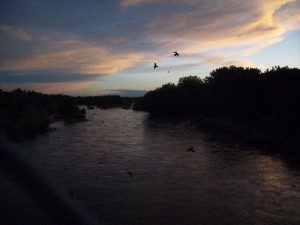Against all my better judgment, I’m presenting the following hymn, a metrical rendering of 2 Maccabees 10.1-7 in the KJV — just in time for sunset of the first night of Hanukkah. You can sing it to any Common Meter tune, although it goes well with Consolation (no. 53 in Singing the Living Tradition).
I tried to keep my interpretation of the KJV text to a minimum. So before you ask, yes, the original text mentions boughs, branches, and palms, and the fact that they remembered their last feast which they spent hiding out in the mountains. It’s easy to forget how weird some of these Bible stories are. I did add the references to freedom and to tyranny, though I feel they are implicit in the story; ditto the reference to the curséd idols.
1. When Maccabeus and his band
Did free Jerusalem,
When they did cast the tyrant out,
‘Twas God who guided them.
1. Good Maccabeus and his band:
They freed Jerusalem.
They cast the wicked tyrant out,
For God was guiding them.
2. The altars which the heathen built
Out in the public square,
They pulled them down, and then destroyed
The curséd idols there.
3. They cleansed the temple, kindled flame,
Gave thanks they now were free.
They then besought God keep them safe
From barb’rous tyranny.
4. They celebrated eight glad days,
Rememb’ring their last feast,
Which they had held in mountain dens
Where they had lived like beasts.
5. Therefore they bore fair branches forth,
Green boughs, and also palms.
They praised the strength that set them free:
To God they raised their psalms.

